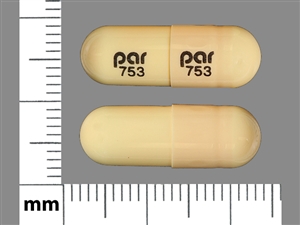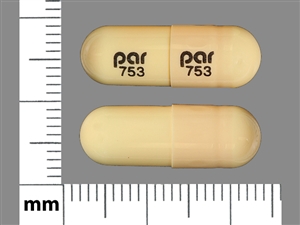What is the most important information I should know about flutamide?
Flutamide can cause serious liver problems. Call your doctor at once if you have upper stomach pain, itching, tired feeling, loss of appetite, dark urine, clay-colored stools, or jaundice (yellowing of the skin or eyes).
You will need frequent blood tests to check your liver function while you are taking flutamide.
What is flutamide?
Flutamide is an antiandrogen. It works in the body to prevent the actions of androgens (male hormones).
Flutamide is used together with another hormone to treat prostate cancer.
Flutamide may also be used for purposes not listed in this medication guide.
What should I discuss with my healthcare provider before taking flutamide?
You should not use this medicine if you are allergic to flutamide.
Flutamide should never be taken by a woman or a child.
Although flutamide is not for use by women, this medicine can cause birth defects if a woman is exposed to it during pregnancy.
To make sure flutamide is safe for you, tell your doctor if you have:
- liver disease;
- a genetic enzyme deficiency called glucose-6-phosphate dehydrogenase (G6PD) deficiency
- hemoglobin M disease;
- if you smoke; or
- if you also take a blood thinner (warfarin, Coumadin, Jantoven).
How should I take flutamide?
Follow all directions on your prescription label. Do not take this medicine in larger or smaller amounts or for longer than recommended.
Flutamide is usually taken every 8 hours. Follow your doctor's instructions.
Call your doctor if you have severe or ongoing diarrhea. Your doctor may recommend an anti-diarrhea medicine.
Drink plenty of liquids while you are taking flutamide. Your doctor may recommend a special diet to help prevent diarrhea.
While using flutamide, you may need frequent blood tests.
Flutamide is given as part of a combination prostate cancer treatment with another medicine called a luteinizing (LOO-tee-in-ize-ing) hormone-releasing hormone, or LHRH. These medicines prevent the testicles from producing testosterone.
You should not stop using flutamide suddenly. Stopping suddenly may make your condition worse.
Store at room temperature away from moisture, heat, and light.
Read all patient information, medication guides, and instruction sheets provided to you. Ask your doctor or pharmacist if you have any questions.
What happens if I miss a dose?
Take the missed dose as soon as you remember. Skip the missed dose if it is almost time for your next scheduled dose. Do not take extra medicine to make up the missed dose.
Call your doctor for instructions if you miss an appointment for your LHRH injection.
What happens if I overdose?
Seek emergency medical attention or call the Poison Help line at 1-800-222-1222.
What should I avoid while taking flutamide?
To help prevent diarrhea, avoid dairy products such as milk, cheese, and yogurt. Do not use laxatives while taking flutamide.
This medicine can pass into body fluids (urine, feces, vomit). Caregivers should wear rubber gloves while cleaning up a patient's body fluids, handling contaminated trash or laundry or changing diapers. Wash hands before and after removing gloves. Wash soiled clothing and linens separately from other laundry.
What are the possible side effects of flutamide?
Get emergency medical help if you have signs of an allergic reaction: hives; difficult breathing; swelling of your face, lips, tongue, or throat.
Flutamide can cause serious liver problems. Call your doctor at once if you have:
- nausea, upper stomach pain, loss of appetite;
- itching, tired feeling, flu-like symptoms;
- dark urine, clay-colored stools; or
- jaundice (yellowing of the skin or eyes).
Common side effects may include:
- breast swelling or tenderness;
- hot flashes;
- vomiting, diarrhea; or
- impotence, loss of interest in sex.
This is not a complete list of side effects and others may occur. Call your doctor for medical advice about side effects. You may report side effects to FDA at 1-800-FDA-1088.
What other drugs will affect flutamide?
Other drugs may interact with flutamide, including prescription and over-the-counter medicines, vitamins, and herbal products. Tell each of your health care providers about all medicines you use now and any medicine you start or stop using.
Where can I get more information?
Your doctor or pharmacist can provide more information about flutamide.
Remember, keep this and all other medicines out of the reach of children, never share your medicines with others, and use this medication only for the indication prescribed.
Every effort has been made to ensure that the information provided by Cerner Multum, Inc. ('Multum') is accurate, up-to-date, and complete, but no guarantee is made to that effect. Drug information contained herein may be time sensitive. Multum information has been compiled for use by healthcare practitioners and consumers in the United States and therefore Multum does not warrant that uses outside of the United States are appropriate, unless specifically indicated otherwise. Multum's drug information does not endorse drugs, diagnose patients or recommend therapy. Multum's drug information is an informational resource designed to assist licensed healthcare practitioners in caring for their patients and/or to serve consumers viewing this service as a supplement to, and not a substitute for, the expertise, skill, knowledge and judgment of healthcare practitioners. The absence of a warning for a given drug or drug combination in no way should be construed to indicate that the drug or drug combination is safe, effective or appropriate for any given patient. Multum does not assume any responsibility for any aspect of healthcare administered with the aid of information Multum provides. The information contained herein is not intended to cover all possible uses, directions, precautions, warnings, drug interactions, allergic reactions, or adverse effects. If you have questions about the drugs you are taking, check with your doctor, nurse or pharmacist.
Copyright 1996-2020 Cerner Multum, Inc. Version: 3.05. Revision date: 10/21/2015.





